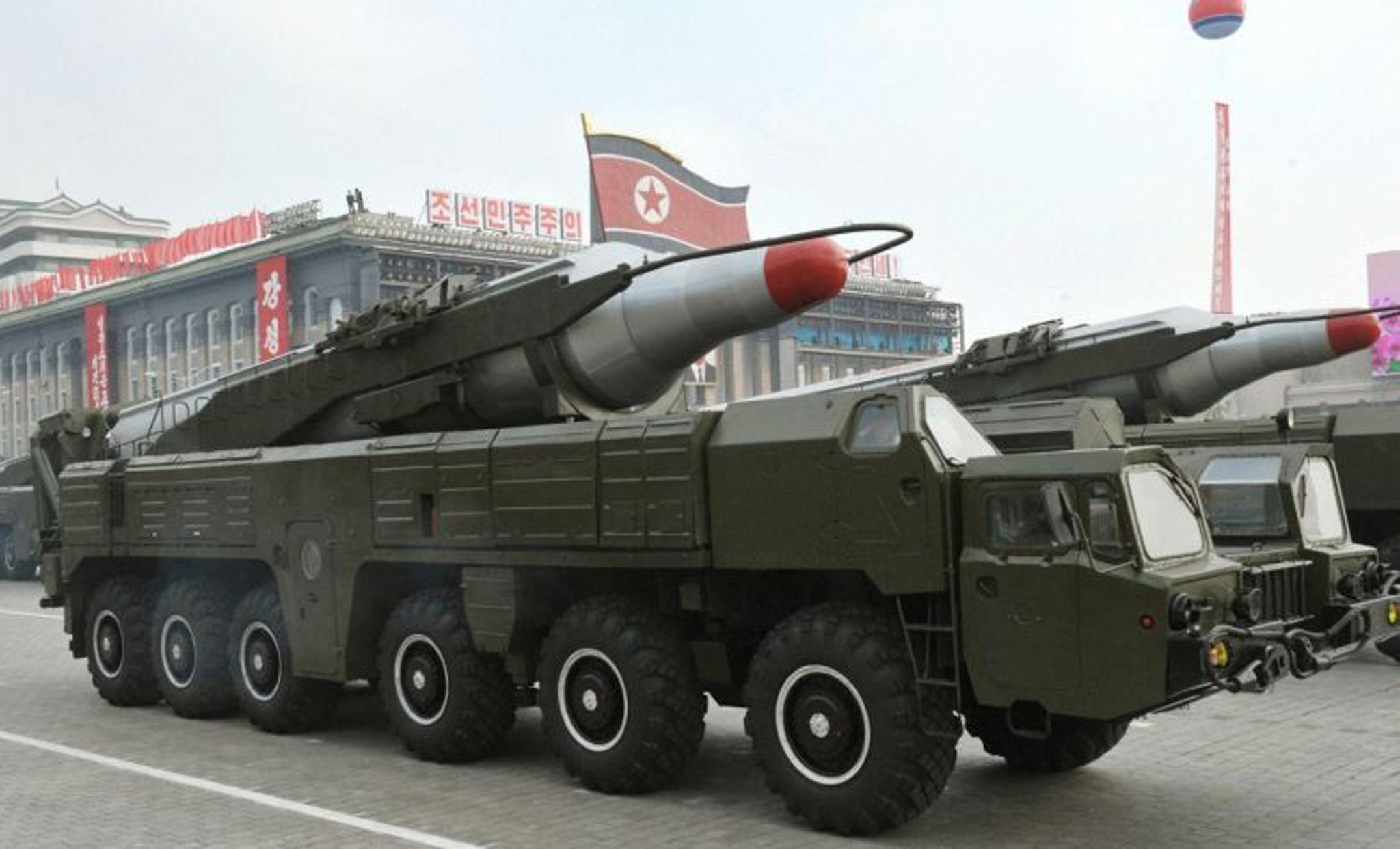North Korea moves missiles away from coastal launch site, say US officials
Musudan missiles believed to now be in non-operational location

Your support helps us to tell the story
From reproductive rights to climate change to Big Tech, The Independent is on the ground when the story is developing. Whether it's investigating the financials of Elon Musk's pro-Trump PAC or producing our latest documentary, 'The A Word', which shines a light on the American women fighting for reproductive rights, we know how important it is to parse out the facts from the messaging.
At such a critical moment in US history, we need reporters on the ground. Your donation allows us to keep sending journalists to speak to both sides of the story.
The Independent is trusted by Americans across the entire political spectrum. And unlike many other quality news outlets, we choose not to lock Americans out of our reporting and analysis with paywalls. We believe quality journalism should be available to everyone, paid for by those who can afford it.
Your support makes all the difference.North Korea has taken two Musudan missiles off launch-ready status and moved them from their position on the country's east coast, US officials have said, after weeks of concern that Pyongyang had been poised for a test-launch.
US Secretary of State John Kerry warned North Korea last month that it would be a "huge mistake" to launch the medium-range missiles, but the prospects of a test had put Seoul, Washington and Toyko on edge.
One US official, speaking anonymously to the Reuters news agency, cautioned that the missiles were still mobile and the fact that they had been moved was no guarantee they would not be set up elsewhere and fired at some point.
"It is premature to celebrate it as good news," said another US official, Daniel Russel, the senior director for Asian affairs at the National Security Council.
However, a third US official, also speaking on condition of anonymity, said the United States did not believe the missiles had gone to an alternate launch site and that they were now believed to be in a non-operational location.
The Musudan missiles have a range of roughly 3,000 to 3,500 kilometers (1,900 to 2,200 miles). A possible test launch, depending its trajectory, could have dramatically escalated tensions on the Korean peninsula.
North Korea's move coincided with preparations by President Barack Obama to meet South Korean President Park Guen-hye at the White House on Tuesday, where they will hold talks and have a working lunch followed by a joint news conference.
Pentagon spokesman George Little declined to comment on the status of the North Korean missiles.
"I wouldn't again comment on intelligence. But what we have seen recently is a 'provocation pause.' And we think that's obviously beneficial to efforts to ensure we have peace and stability on the Korean peninsula," Little told reporters.
The heightened tensions, including North Korean threats to attack U.S. bases in the Pacific, coincided with US-South Korean military drills that Pyongyang had branded "a rehearsal for invasion." Those drills ended on April 30.
In a rare show of force during the drills, two nuclear-capable, bat-winged B-2 stealth bombers flew 37 1/2 hours from their U.S. base to drop dummy munitions on a South Korean range, and then returned home.
Asked what may have contributed to Pyonyang's latest move, Little noted various possibilities, including the fact that, North Korea's previous cycles of provocation had ended after a while.
He also noted that the Chinese government had made some helpful statements.
"We do think they (China) probably - again I can't speak for them - they probably heard very loudly from us and from others the need to ratchet it back and lower the temperature," Little said.
The White House's Russel told reporters it was too early to determine whether North Korea's apparent move away from a launch was an encouraging development.
"It's premature to make a judgment about whether the North Koreans' provocation cycle is going up, down or zigzagging," he said. "The decision to launch or not launch missiles, to conduct a provocation or to stand down or defer it, is a decision that rests with the North Koreans."
Reuters
Join our commenting forum
Join thought-provoking conversations, follow other Independent readers and see their replies
Comments